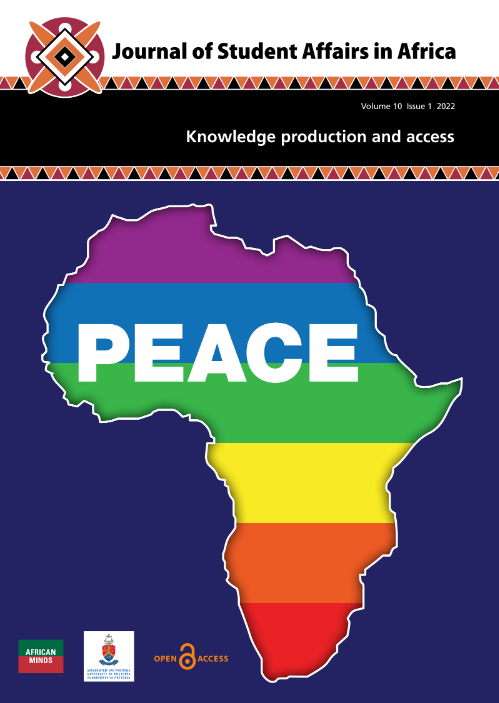An Exploratory Qualitative Study on the Perceived Barriers to Accessing Ghanaian University Counselling Services
DOI:
https://doi.org/10.24085/jsaa.v10i1.3788Keywords:
Counselling, academic achievement, higher education, student support serviceAbstract
Despite research emphasis on university students’ counselling needs and service benefits, barriers to counselling service participation for students have been less explored in Ghanaian higher education. Yet literature is replete with reports on high undergraduate student attrition and a low sense of belonging, stressing the severe need for increased counselling service participation among students in higher education. This article explored the barriers to increased counselling service participation faced by Ghanaian public university students. Our research engaged 13 counselled undergraduate students, purposively selected via snowball and convenience sampling techniques. We engaged study participants in in-depth interviews and a focus group discussion to gather appropriate data and further used the interpretive phenomenological approach to find meaning in the gathered data. Students revealed their perceptions on poor counsellors’ sense of initiative, their low service awareness, and their misconceptions which seem to hinder students’ counselling service participation. Our results underscore the need for more service advertising and possibly increased counsellor initiative to promote counselling service use among higher education students in Ghana. Daily service advertising with counsellors’ reliance on text and WhatsApp messaging, still pictures and short videos on the various campuses (Amos et al., 2020) would considerably increase students’ awareness of counselling services.
Downloads
Published
Issue
Section
License
Copyright (c) 2022 Sylvia Ocansey, Prof. Maximus Sefotho

This work is licensed under a Creative Commons Attribution-NonCommercial-ShareAlike 4.0 International License.
Authors who publish with this journal agree to the following terms:
Authors retain copyright and grant the journal right of first publication with the work simultaneously licensed under the Creative Commons Attribution Share-alike 4.0 International License that allows others to share the work with an acknowledgement of the work's authorship and initial publication in this journal.
Authors are able to enter into separate, additional contractual arrangements for the non-exclusive distribution of the journal's published version of the work (e.g., post it to an institutional repository or publish it in a book), with an acknowledgement of its initial publication in this journal.
Authors are permitted and encouraged to post their work online (e.g., in institutional repositories or on their website) prior to and during the submission process, as it can lead to productive exchanges, as well as earlier and greater citation of published work (See: The Effect of Open Access).


